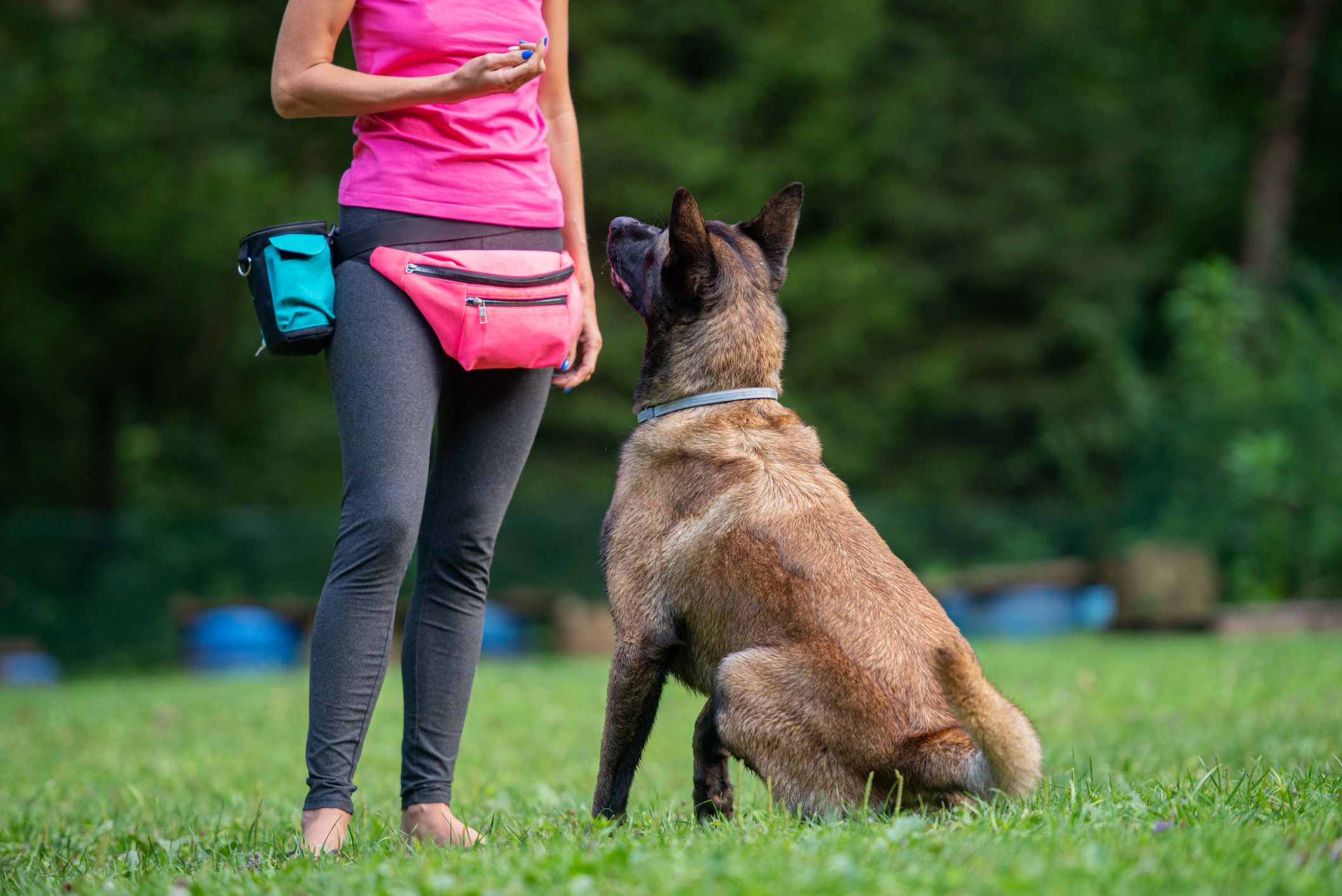Effective Dog Training Tips for Busy Pet Owners
Effective Dog Training Tips for Busy Pet Owners
Blog Article
How Effective Pet Dog Educating Can Boost Your Family pet's Actions
Efficient pet training plays an essential function in improving a family pet's habits, creating a structure for communication and understanding between the owner and the pet. As we check out the different aspects of reliable training, the influence on both the proprietor and the animal comes to be significantly obvious, raising questions concerning the long-term advantages and approaches that can be utilized.
Benefits of Pet Dog Training
The efficiency of dog training hinges on its extensive ability to improve the bond between pet dogs and their owners. Proper training promotes trust and communication, enabling pets to comprehend their proprietors' assumptions and respond appropriately. This good understanding decreases behavior concerns and boosts total friendship.
Among the primary advantages of canine training is the improvement of socializing abilities. Well-trained canines are a lot more skilled at interacting with other family pets and individuals, reducing the probability of scared or aggressive actions (Dog training). Training additionally infuses self-control, motivating pets to develop manners, such as not jumping on visitors or pleading for food during meals
In addition, trained pets have a tendency to experience enhanced mental stimulation, which can counteract behavior problems coming from boredom. Taking part in training sessions offers an electrical outlet for a canine's natural impulses, advertising a much healthier and much more well balanced way of life.
In addition, pet dog training can dramatically add to the safety of both the proprietor and the family pet. Commands such as "sit," "remain," and "come" can protect against dangerous situations, ensuring that pets stay protected in different environments. In recap, the benefits of canine training prolong beyond obedience, enriching the lives of both pets and their proprietors.
Comprehending Favorable Support
Positive reinforcement is a powerful training approach that motivates preferable habits in canines with benefits. This method is grounded in the concept that actions followed by positive results are more probable to be repeated. By compensating your dog with treats, appreciation, or playtime right away after they display a preferred actions, you enhance the bond in between you and your pet while concurrently strengthening that behavior.
One of the essential benefits of positive support is that it cultivates a favorable discovering setting. When they link training sessions with delightful experiences, pet dogs are much more most likely to involve and participate. This approach additionally lessens fear and stress and anxiety, which can be detrimental in training.
To efficiently implement positive support, consistency is important. Enhance the desired habits each time it happens originally, then slowly move to recurring incentives as the behavior ends up being a lot more reputable. It's necessary to make sure that the rewards are inspiring for your dog, as private preferences might vary.
Ultimately, understanding and applying positive reinforcement can cause a fulfilling training and a well-behaved animal experience for both the owner and the pet. This technique not just boosts obedience however additionally enhances the general relationship in between you and your fuzzy buddy.
Usual Behavioral Concerns
Lots of pet dog proprietors experience a range of common behavior issues that can complicate the training procedure. These actions typically stem from a range of variables, including absence of socialization, inadequate workout, or failure to develop a clear hierarchy within the household.
One widespread concern is too much barking, which can be set off by dullness, stress and anxiety, or a need for focus. This behavior not only interferes with the household but can likewise lead to disputes with neighbors.
Aggression is an extra serious issue, showing up as growling, breaking, or attacking. It can develop from anxiety, territorial instincts, or aggravation. Furthermore, separation anxiety is often observed in canines that may end up being destructive when laid off, suggesting a requirement for behavioral adjustment.
Strategies for Effective Training
Efficient training strategies are vital for promoting preferable behaviors in dogs and attending to common problems that develop. Among one of the most efficient techniques is favorable reinforcement, which involves rewarding preferred behaviors with treats, praise, or play. This encourages pet dogs to repeat these habits, promoting a more satisfying knowing experience.
Consistency is one more vital part of reliable training. Developing clear commands and assumptions assists pet dogs recognize what his response is called for of them. Making use of the very same cues and benefits continually ensures that the canine can dependably link the habits with the desired end result.

Furthermore, incorporating brief, appealing training sessions can maintain a dog's interest and focus. Objective for sessions lasting between five to fifteen minutes, making them regular to reinforce learning without frustrating the pet.
Last but not least, it's essential to remain individual and tranquility, as disappointment can hinder development. By utilizing these methods, owners can develop a positive and structured training environment that boosts their pet's behavior and total wellness.
Building a Stronger Bond
A solid bond between a canine and its owner is essential to successful training and overall family pet habits. This connection promotes trust fund, making pets more receptive to commands and training methods. To cultivate this bond, consistency and favorable reinforcement are important. Engaging in regular training sessions not only shows obedience but also enhances the psychological connections between proprietor and animal.
Quality time spent together, whether via play, strolls, or simple friendship, improves shared understanding. Dogs are social pets that thrive on interaction; thus, giving possibilities for socialization with other pet dogs and individuals can further enrich the bond.
Recognizing your pet's distinct character and needs is important. Tailoring training methods to match their character can result in extra effective end results and better experiences. Furthermore, identifying and compensating etiquette reinforces count on and encourages your pet dog to involve positively.

Conclusion
In summary, effective canine training plays a crucial function in boosting pet actions and cultivating a favorable connection between dogs and their owners (Dog training). Ultimately, the benefits of training contribute to the overall well-being and joy of both pet dogs and their human friends.
Efficient pet training plays a crucial function in boosting a pet dog's actions, developing a structure for communication and understanding between the proprietor and the dog. In recap, the benefits of canine training expand beyond obedience, enhancing the lives of both canines and their proprietors.
Positive that site support is a powerful training approach that motivates desirable behaviors in pet dogs through incentives.A solid bond between a pet dog and its proprietor is essential to Get the facts successful training and overall family pet behavior.In recap, reliable dog training plays an essential role in boosting pet behavior and promoting a positive relationship in between canines and their proprietors.
Report this page